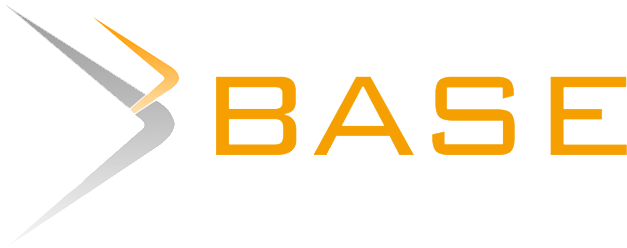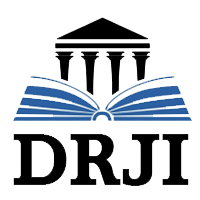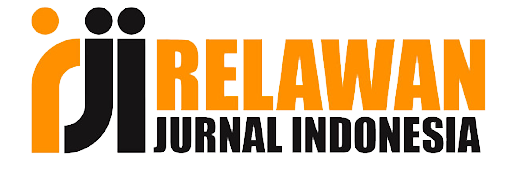Faktor-faktor yang Memengaruhi Perilaku Judi Online pada Remaja: Narrative Literature Review
Abstract
Online gambling is the act of wagering money or valuable items to gain profits in which the amount is uncertain. Recently, online gambling has become prevalent among young people, and in this context, adolescents are prone to engaging in activities which can be detrimental to themselves and other people by committing acts of indecency like thievery and selling valuable items that can belong to others. Online gambling also has several negative impacts on the lives of adolescents, including a decline in academic performance, emotional instability, poor relationships with others, and gambling disorders. This research aims to examine the factors influencing online gambling behavior in adolescents. The study utilizes a literature review method with a narrative review type. The articles were accessed through sources such as Google Scholar, PubMed, Springer, and Science Direct, with publication years ranging from 2013 - 2023. Based on the literature review findings, five major categories were identified, including factors originating from the individual, family, social environment, socio-economic, and internet features. This literature review is expected to provide readers with comprehensive information on the factors that lead adolescents to engage in online gambling behavior. Additionally, it aims to serve as a foundation for developing interventions to address this issue.
Judi online adalah tindakan mempertaruhkan uang atau barang berharga untuk mendapatkan keuntungan yang tidak pasti. Saat ini, judi online semakin marak terjadi di kalangan remaja, dan dalam hal ini, remaja rentan terlibat dalam aktivitas yang dapat merugikan diri sendiri dan orang lain, seperti mencuri dan menjual barang-barang berharga. Judi online juga memberikan dampak negatif terhadap kehidupan remaja, beberapa diantaranya adalah penurunan prestasi akademik, ketidakstabilan emosi, hubungan yang buruk dengan orang lain, dan gangguan perjudian. Penelitian ini bertujuan untuk mengetahui faktor-faktor yang memengaruhi perilaku judi online pada remaja. Penelitian ini menggunakan metode literature review dengan tipe narrative review. Sumber pencarian artikel diakses melalui sumber pustaka Google Scholar, PubMed, Springer, dan Science Direct dengan tahun publikasi rentang 2013 – 2023. Berdasarkan hasil pengkajian literatur, diperoleh lima kategori utama, yaitu faktor yang berasal dari individu, keluarga, lingkungan sosial, sosial ekonomi, dan fitur internet. Literature review ini diharapkan dapat memberikan informasi yang komprehensif kepada pembaca mengenai faktor-faktor yang menyebabkan remaja melakukan dan mempertahankan perilaku judi online, serta dapat menjadi landasan dalam pengembangan intervensi untuk mengatasi situasi tersebut.
Keywords
Full Text:
PDFReferences
Agus, A. I., Nurlim, R., Asnaniar, W. O. S., Alam, R. I., Ernasari, N. I. P., dan Ramli, R. Studi Literatur (Systematic, Narrative, Scoping, Argumentative, Theoritical). Eureka Media Aksara.
Anselme, P., & Robinson, M. J. F. (2013). What motivates gambling behavior? Insight into dopamine’s role. Frontiers in Behavioral Neuroscience, 7, Article 182. https://doi.org/10.3389/fnbeh.2013.00182.
APJII. (2023). Survei penetrasi dan perilaku internet 2023. survei.apjii.or.id: https://survei.apjii.or.id.
Aricak, O. T. (2019). Problematic online betting among Turkish adolescents. Journal of gambling studies, 35(1), 31-45.
AT, M. R., Haris, A., & Heru, H. (2019). Judi online dikalangan remaja (kasus kelurahan bone–bone, luwu). Hasanuddin Journal of Sociology, 127-138.
Banks, J. (2014). Online gambling and crime causes, controls, controversies. England: Ashget.
Barnett, E., & Casper, M. (2001). A definition of “social environment”. American journal of public health, 91(3). https://doi.org/465-470. 10.2105/ajph.91.3.465a
Barus, C. P. (2013). Sosial ekonomi keluarga dan hubungannya dengan kenakalan remaja di desa Lantasan Baru kecamatan Patumbak Kabupaten Deli Serdang. Welfare State, 2(1).
Bradley, R. H., & Corwyn, R. (2013). From parent to child to parent…: Paths in and out of problem behavior. Journal of abnormal child psychology, 41(4), 515-529. https://doi.org/10.1007/s10802-012-9692-x.
Braun, V., & Clarke, V. (2006). Using thematic analysis in psychology. Qualitative Research in Psychology, 3(2), 77-101.
Bronfenbrenner, U. (1986). Ecology of the family as a context for human development: Research perspectives. Developmental Psychology, 22(6), 723–742. https://doi.org/10.1037/0012-1649.22.6.723.
Budiman, R., Romadini, N. A., Aziz, M. A. H., & Pratama, A. G. (2022). The impact of online gambling among indonesian teens and technology. IAIC Transactions on Sustainable Digital Innovation (ITSDI), 3(2), 162-167.
Bush, K. R., & Peterson, G. W. (2013). Parent–child relationships in diverse contexts. In Handbook of marriage and the family (pp. 275-302). Springer US.
Canale, N., Griffiths, M. D., Vieno, A., Siciliano, V., & Molinaro, S. (2016). Impact of Internet gambling on problem gambling among adolescents in Italy: Findings from a large-scale nationally representative survey. Computers in Human Behavior, 57, 99-106.
CNN Indonesia. (2023, October 5) . PPATK: Transaksi judi online sepanjang 2023 rp160 triliun. cnnindonesia.com. https://www.cnnindonesia.com/nasional/20231004195140-12-1007237/ppatk-transaksi-judi-online-sepanjang-2023-capai-rp160-triliun.
Dwihayuni, Y. P., & Fauzi, A. M. (2021). The motive for the action of online gambling as an additional livelihood during social restrictions due to the Covid-19 pandemic motif aksi perjudian online sebagai mata pencaharian tambahan selama pembatasan sosial akibat pandemi Covid-19. Jurnal Sosiologi Dialektika, 16(2), 108-116.
Emond, A. M., & Griffiths, M. D. (2020). Gambling in children and adolescents. British medical bulletin, 136(1), 21–29. https://doi.org/10.1093/bmb/ldaa027.
Escario, J. J., & Wilkinson, A. V. (2020). Exploring predictors of online gambling in a nationally representative sample of Spanish adolescents. Computers in Human Behavior, 102, 287-292.
Evans, G. W. (2004). The environment of childhood poverty. American Psychologist, 59(2), 77–92. https://doi.org/10.1037/0003-066X.59.2.77.
Feist, J. and Feist, G.J. (2006). Theories of personality (6th edition). New York: McGraw Hill.
Fujita, J., Aoyama, K., Saigusa, Y., Miyazaki, H., Aoki, Y., Asanuma, K., Takahashi, Y., & Hishimoto, A. (2022). Problematic Internet use and daily difficulties among adolescents with school refusal behaviors: An observational cross-sectional analytical study. Medicine, 101(7).
Gainsbury, S. (2012). Internet gambling: Current research findings and implications. Springer Science.
Gibbs, J. T., & Huang, L. N. (1989). Children of color: Psychological interventions with minority youth. Jossey-Bass/Wiley.
Global Market Insight. (2023, May). Online Gambling Market - By Game. gminsight.com. https://www.gminsights.com/industry-analysis/online-gambling-market.
Gomes, K., & Pascual-Leone, A. (2015). A resource model of change: Client factors that influence problem gambling treatment outcomes. Journal of gambling studies, 31(4), 1651–1669. https://doi.org/10.1007/s10899-014-9493-y.
Gómez, P., Feijóo, S., Braña, T., Varela, J., & Rial, A. (2020). Minors and online gambling: Prevalence and related variables. Journal of gambling studies, 36(3), 735–745. https://doi.org/10.1007/s10899-019-09923-3.
Grant, M. J., & Booth, A. (2009). A typology of reviews: An analysis of 14 review types and associated methodologies. Health Information and Libraries Journal, 26(2), 91-108.
Griffiths, M. (1999). Gambling Technologies: Prospects for problem gambling. Journal of Gambling Studies, 15, 265–283. https://doi.org/10.1023/A:1023053630588
Griffiths, M. D., Parke, A., Wood, R., & Parke, J. (2006). Internet gambling: An overview of psychosocial impacts. UNLV Gaming Research & Review Journal, 10(1).
Håkansson, A. (2020). Impact of Covid-19 on online gambling–a general population survey during the pandemic. Frontiers in Psychology, 11.
Humas Polri. (2024, February 4). Kecanduan judi online, remaja ini nekat melakukan pencurian hingga diamankan Polres Nunukan. humas.polri.go.id. https://humas.polri.go.id/2024/02/04/kecanduan-judi-online-remaja-ini-nekat-melakukan-pencurian-hingga-diamankan-polres-nunukan/
Kang, K., Ok, J. S., Kim, H., Lee, K. (2019). The gambling factors related with the level of adolescent problem gambler. International Journal of Environmental Research and Public Health, 16(12). https://doi.org/10.3390/ijerph16122110
KOMINFO. (2023, September 18). Batasi ruang gerak, kominfo takedown konten judi online. kominfo.go.id. https://www.kominfo.go.id/content/detail/51684
Ladouceur, R., Boisvert, J. M., & Dumont, J. (1994). Cognitive-behavioral treatment for adolescent pathological gamblers. Behavior Modification, 18(2), 230–242.
Lazarus, R. S., & Folkman, S. (1984). Stress, Appraisal, and Coping. McGraw- Hill, Inc.
Lubis, A. A., Saleh, S., & Marsa, Y. J. (2022). The phenomenon of online gambling under the guise of online games among college stundent. JHSS (Journal of Humanities and Social Studies), 6(3), 363-367.
McBride, J., & Derevensky, J. (2009). Internet gambling behavior in a sample of online gamblers. International Journal of Mental Health and Addiction, 7(1), 149–167. https://doi.org/10.1007/s11469-008-9169-x.
McCormack, A., & Griffiths, M. D. (2012). Motivating and inhibiting factors in online gambling behaviour: A grounded theory study. International Journal of Mental Health and Addiction, 10(1), 39–53. https://doi.org/10.1007/s11469-010-9300-7.
Montiel, I., Ortega-Barón, J., Basterra-González, A., González-Cabrera, J., & Machimbarrena, J. M. (2021). Problematic online gambling among adolescents: A systematic review about prevalence and related measurement issues. Journal of Behavioral Addictions, 10(3), 566-586. 10.1556/2006.2021.00055.
Nazmudin, A., & Hartik, A. (2023, September 2). Promosi judi online di media sosial, 4 remaja di Pandeglang ditangkap. Retrieved from regional. kompas.com. https://regional.kompas.com/read/2023/09/03/114436478/promosi-judi-online-di-media-sosial-4-remaja-di-pandeglang-ditangkap
Özparlak, A., Karakaya, D., Önder, A., & Günbayı, İ. (2023). Problematic internet use in adolescents: A phenomenological study. Journal of Psychiatric and Mental Health Nursing. https://doi.org/10.1111/jpm.12900.
Rensen, D. (2018). Understanding the appeal of online gambling opportunities and risks associated with the affordances, motivations and gratifications of gamblers. Tilburg University.
Republika. (2023, October 8). Judi online marak di kalangan pelajar, bukti literasi masyarkat rendah. ekonomi.republika.co.id. https://ekonomi.republika.co.id/berita/s26u4d370/judi-online-marak-di-kalangan-pelajar-bukti-literasi-masyarakat-rendah
Romer D. (2010). Adolescent risk taking, impulsivity, and brain development: Implications for prevention. Developmental Psychobiology, 52(3), 263–276.
Sahputra, D., Afifa, A., Salwa, A. M., Yudhistira, N., & Lingga, L. A. (2022). Dampak judi online terhadap kalangan remaja (studi kasus tebing tinggi). Islamic Counseling: Jurnal Bimbingan dan Konseling Islam, 6(2), 139-156.
Santrock, J. W. (2013). Remaja (edisi ke-11). Penerbit Erlangga.
Santrock, J. W. (2014). Adolescence (15th Edition). Mc Graw Hill.
Serna, C., García-Perales, J., & Martínez, I. (2023). Protective and risk parenting styles for internet and online gambling addiction. Human Behavior and Emerging Technologies, 2023. https://www.hindawi.com/journals/hbet/2023/6674541/.
Skinner, B. F. (1990). Can psychology be a science of mind? American Psychologist, 45(11), 1206–1210. https://doi.org/10.1037/0003-066X.45.11.1206.
Soekanto, S. (2007). Sosiologi: Suatu Pengantar. Raja Grafindo Persada.
Stark, S., & Robinson, J. (2021). Online gambling in unprecedented times: Risks and safer gambling strategies during the COVID-19 pandemic. Journal of Gambling Issues, 47.
Tama, Y. (2023). Phenomenology of teenagers playing online gambling higgs domino island in Sungai Padang Hamlet, Koto Gasib District, Siak Regency. JoSS: Journal of Social Science, 2(3), 333-342.
Taylor, S. E., Peplau, E. A., Sears, D. O. (2009). Psikologi Sosial (Edisi ke-12). Prenadamedia Group.
Van Rooij, A. J., Vanden Abeele, M., & Van Looy, J. (2017). Gambling and gaming in belgium: Opportunities and risks associated with online digital gambling. Gent: imec-mict-Universiteit Gent.
Villa, S., Loredo, R. L. V., Gosende, G. A., & Hermida, J. R. F. (2016). The relationship between impulsivity and problem gambling in adolescence. Frontiers in Psychology, 7, 1931. https://www.frontiersin.org/articles/10.3389/fpsyg.2016.01931/full.
Welianto, A. (2024, April 30). Remaja di Sikka promosi judi online, Polres Sikka Imbau masyarakat tak tergiur promosi judi online. flores.tribunnews.com. https://flores.tribunnews.com/amp/2024/04/30/remaja-di-sikka-promosi-judi-online-polres-sikka-imbau-masyarakat-tak-tergiur-promosi-judi-online
Wong, I. L. K., & So, E. M. T. (2014). Internet gambling among high school students in Hong Kong. Journal of Gambling Studies, 30, 565-576.
Yoshikawa, H., Aber, J. L., & Beardslee, W. R. (2012). The effects of poverty on the mental, emotional, and behavioral health of children and youth: Implications for prevention. American Psychologist, 67(4), 272–284. https://doi.org/10.1037/a0028015.
Zhai, Z. W., Yip, S. W., Steinberg, M. A., Wampler, J., Hoff, R. A., Krishnan-Sarin, S., & Potenza, M. N. (2017). Relationships between perceived family gambling and peer gambling and adolescent problem gambling and binge-drinking. Journal of gambling studies, 33, 1169-1185. 10.1007/s10899-017-9670-x.
Zurohman, A., Astuti, T. M. P., & Sanjoto, T. B. (2016). Dampak fenomena judi online terhadap melemahnya nilai-nilai sosial pada remaja (studi di Campusnet Data Media cabang Sadewa Kota Semarang). JESS (Journal of Educational Social Studies), 5(2), 156-162.
DOI: https://doi.org/10.24176/perseptual.v9i1.11940
Article Metrics
Refbacks
- There are currently no refbacks.

Jurnal Psikologi Perseptual (eISSN 2580-9520) is licensed under a Creative Commons Attribution-ShareAlike 4.0 International License














